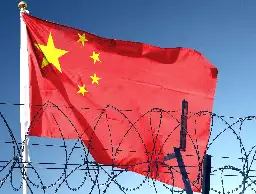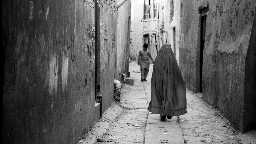Human Rights
- @amnestyireland @un @unitednationsclimatechange @amnestyireland @amnesty@social.undernet.uy @WHO watch @lemmy.sdf.org @BBCNews @SkyNews

@amnestyireland @un @unitednationsclimatechange @amnestyireland @amnesty@social.undernet.uy @WHO @humanrights @humanrightswatch @humanrights@lemmy.sdf.org @BBCNews @SkyNews
- Continuation of previous post. @amnestyireland @amnesty@social.undernet.uy @WHO @un @unitednationsclimatechange @un watch @EURightsAgency @kbin.social @commissionerHR

Continuation of previous post. @amnestyireland @amnesty@social.undernet.uy @WHO @un @unitednationsclimatechange @un @humanrightswatch @EURightsAgency @humanrights@kbin.social @commissionerHR @humanrights@lemmy.sdf.org
- Human rights defenders integral to achieving sustainable development, UN expert saysnews.un.org Rights defenders integral to achieving sustainable development, UN expert says
From women activists feeding thousands of vulnerable families amid the brutal war in Sudan, to young Bangladeshis working to stamp out child marriage, human rights defenders worldwide are helping to achieve the Sustainable Development Goals (SDGs).
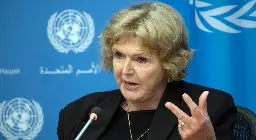
From women activists feeding thousands of vulnerable families amid the brutal war in Sudan, to young Bangladeshis working to stamp out child marriage, human rights defenders worldwide are helping to achieve the Sustainable Development Goals (SDGs).
In fact, they are integral to ensuring that the 17 Goals – which include ending poverty, reducing inequality and protecting the environment – become reality, said Mary Lawlor, UN Special Rapporteur on the situation of human rights defenders.
- Foreign countries are helping autocracies repress exiled dissidents in return for economic gain, researchers saytheconversation.com Foreign countries are helping autocracies repress exiled dissidents in return for economic gain
Repressive countries have more success in co-opting support to silence overseas critics with governments they trade with.
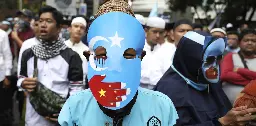
cross-posted from: https://feddit.org/post/4186240
> Governments, even democratic ones, are willing to aid autocracies in silencing exiled dissidents if the host nation thinks it’s in its economic interest. > > That is what we found when looking into cases of transnational repression – the act of governments reaching across their national border to repress diasporas and exiles – from 2014 to 2020. > > Since 2014, international watchdog Freedom House recorded 1,034 cases of governments reaching across borders to illegally deport, abduct, intimidate or assassinate their citizens. > > The most frequent offenders were autocratic countries such as China (213 cases), Turkey (111), Egypt (42), Tajikistan (38), Russia (32) and Uzbekistan (29). > > These governments have extended their reach into over 100 foreign countries to silence critics abroad. While autocracies sometimes act alone or collaborate with nongovernment actors, the most common form of transnational repression involves the governments of countries to which targeted people have fled. This includes democracies working closely with autocratic regimes to arrest, detain and deport people who face the risk of persecution and repression in the home country. > > [...] > > We found strong quantitative evidence that international cooperation on transnational repression relies on a country’s economic ties to the origin country and the quality of the country’s rule of law. > > [...] > > Our findings suggest that many countries are willing to sacrifice the civil liberties of foreign dissidents for economic opportunities with authoritarian governments. Autocracies also appear to be strategically targeting vulnerable states with weak rule of law institutions, such as the police, courts or immigration authorities. > > Foreign countries that are less concerned about the consequences of breaking the rule of law are easier to co-opt and coerce, especially when they’re more financially dependent on the autocratic partner. > > [...]
- When a cashless bank refuses to allow you to withdraw your money, does that violate article 17?
case 1: account closure
Cashless banks have no vault and no cash services apart from the ATMs. ATMs in Europe never handle denominations smaller than €20. This means that even when you are closing an account at a cashless bank, the most you can pull out is a multiple of €20 from your balance. The bank expects you to open an account somewhere else first and transfer the remainder to the other account. This is to keep people trapped in the banking system.
It seems to violate article 17 ¶2:
> 1. Everyone has the right to own property alone as well as in association with others. > 2. No one shall be arbitrarily deprived of his property.
This is not exactly up there with genocide and torture. It’s perhaps the smallest human rights infraction I can think of. But nonetheless, banks should be structured to comply with human rights no matter how trivial, no? It seems like even a cashless bank should (in effect) be required to keep some petty cash on-hand for account closures.
case 2: withdrawal limits
The same question applies for bigger cases. E.g. a bank (cashless or not) may have a daily withdrawal limit; weekly, and monthly too. Perhaps it is fair enough to have a fee or penalty for exceeding their limits, but if I understand correctly the bank has a human rights obligation to allow you to withdraw all your money. At the moment banks with limits simply refuse to execute withrawals that exceed their limits.
case 3: card refusal
ATMs and shops refuse people access to their money for countless arbitrary reasons.
- When a customer’s ID card copy on the bank’s files expires, some banks do not bother to inform the customer or request an updated copy. They just freeze the account. When money is denied, the customer magically presents themselves to the bank to find out why. Cutting off access to funds is the bank’s way of communicating.
- ATMs reject cards for undisclosed reasons. Sometimes a faulty AI bot falsely triggers and claims a transaction looks fraudulent. Sometimes ATMs are discriminating against people based on their origin (locally issued cards get a higher limit than foreign ones, but the ATM does not tell the customer what the limit is or why their transaction is denied).
- New study reveals a global consensus on what democracy meansphys.org New study reveals a global consensus on what democracy means
Most people in most countries state that they wish to have a democratic government. But the definition of democracy has been constantly contested. Without understanding what people really mean by democracy, the concept is vulnerable to being exploited by dictators and anti-democratic politicians for...

Here is the study: https://www.science.org/doi/10.1126/science.adp1274
Most people in most countries state that they wish to have a democratic government. But the definition of democracy has been constantly contested. Without understanding what people really mean by democracy, the concept is vulnerable to being exploited by dictators and anti-democratic politicians for their own ends.
[...]
A new research study led by the University of Oxford, National University of Singapore, and Emory University has now shed light on the question: "How do people around the world define democracy?"
The study surveyed over 6,000 people from the United States, Italy, Egypt, India, Thailand, and Japan- countries with highly different political regimes, democratic histories, geographic regions, levels of development, and cultural backgrounds. The study explored how people prioritize nine different attributes in their understanding of what makes a country democratic, using examples of hypothetical countries.
[...]
-
Overwhelmingly, participants were significantly more likely to view countries that select their leaders through free and fair elections as more democratic than countries without elections.
-
Participants were also significantly more likely to view countries with strong protections for civil liberties as more democratic compared with countries without such protections.
-
The relevance of these was consistent regardless of people's age, gender, education, minority status, or political ideology.
-
After elections and liberties, the two most important attributes were gender equality, then economic equality. Countries in which men and women have equal rights are more likely to be seen as democratic than countries with highly unequal gender rights. Relative equality between the rich and poor (compared with high inequality) also increased the likelihood that a country was seen as more democratic.
-
Then, countries where leaders must respect the legislature and courts' authority in decision making were more likely to be perceived as more democratic compared with countries in which the leader frequently bypasses the legislative and judicial branches when making decisions.
-
In contrast, the researchers found little evidence of an "authoritarian" redefinition of democracy taking root anywhere. Even within authoritarian countries such as Egypt or Thailand, democracy was still perceived as being rooted in elections and liberties.
-
- If we are forced to patronize a bank, does that violate Art.20 of the UDHR?
cross-posted from: https://links.hackliberty.org/post/38945
> Question about #humanRights— Article 20 of the #UDHR¹ states: > > “① Everyone has the right to freedom of peaceful assembly and association. > > ② No one may be compelled to belong to an association.” > > How does that apply in the context of forced banking? If a government forces you to enter the marketplace and register for a bank account, does that qualify as being compelled to belong to an association? > > ¹UDHR: Universal Declaration of Human Rights > > #askFedi
- Justice is denied from Palestine to the Uyghur homeland: What happens in Gaza and China's Xinjiang region should equally outrage us all, human rights lawyer saysdawnmena.org How Justice Is Denied From Palestine to the Uyghur Homeland
As a Uyghur human rights lawyer forced to live in exile, I see Xinjiang everywhere. But nowhere more starkly than in places like Gaza.

cross-posted from: https://feddit.org/post/3823927
> "The dehumanization of Palestinians and the collective punishment they endure from Israel's war in Gaza have shattered the very fabric of their society, much like what China has inflicted upon my people," writes exiled Uyghur human rights lawyer Rayhan Asat. > > The Palestinian mother watching a bulldozer tear through her house reminds me of every Uyghur mother whose home was invaded by Chinese forces. The rubble of schools and mosques destroyed in Gaza takes me back to my homeland, where the oldest shrines have been leveled, and our teachers handed life sentences. The surveillance system China tested against the Uyghurs has been exported to the streets of occupied Hebron. As Israeli settlers flood the West Bank with the full support of Israel's government, I'm reminded of the millions of Han people that China brought into my homeland, where they receive special privileges in an apartheid system the world has ignored for decades. > > [...] > > Israeli atrocities in Gaza, and the intentional blocking of humanitarian aid that has led to starvation and the spread of polio in the besieged territory, have sparked global outrage, especially among young people. However, this same level of outrage has not been directed toward China's systematic efforts to slowly eradicate the Uyghur people in its prison camps. Some argue that the differing reactions are due to America's direct support for Israel's war in Gaza, but victims do not suffer less because of the identity of their perpetrator. If human rights are truly universal, then what happens in Gaza and Xinjiang should equally outrage us all.
- Rights Groups Say Dozens Arbitrarily Detained By Huthis In Yemenwww.barrons.com Rights Groups Say Dozens Arbitrarily Detained By Huthis In Yemen
Two human rights groups on Tuesday accused Yemen's Huthi rebels of arbitrarily arresting dozens of people for celebrating the anniversary of a 1962 coup in the country's north and called for their release.

> New York-headquartered Human Rights Watch and the Cairo Institute for Human Rights (CIHR) said that at the end of September there was a "wave" of arrests of people "peacefully celebrating or posting on social media" about the anniversary marking the creation of the Yemen Arab Republic.
> The groups said the Iran-backed Huthis, who control vast swathes of Yemen including its capital Sanaa, had brought no charges against the protesters and "should immediately release all those who were detained solely for exercising their right to freedom of assembly and speech".
> The Huthis have kidnapped, arbitrarily detained and tortured hundreds of civilians, including UN and NGO workers, since the start of Yemen's civil war in 2014, according to rights groups.
- European lawmakers call out human rights breaches in Türkiye, China and Iraqwww.europarl.europa.eu Human rights breaches in Türkiye, China and Iraq | News | European Parliament
On Thursday, the Parliament adopted three resolutions on human rights issues in Türkiye, China and Iraq.
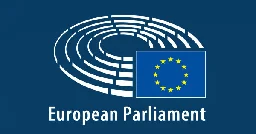
cross-posted from: https://feddit.org/post/3660846
> - The European Parliament (EP) urges Turkish authorities to drop the charges against Bülent Mumay and all other arbitrarily detained media workers, political opponents, human rights defenders, civil servants and academics. Türkiye deplores "a complex web of legislation that systematically silences and controls journalists, and denounce the new “foreign agent regulation” to be introduced by the end of 2024", the EP says in a statement. > > - China must immediately and unconditionally release Ilham Tohti, 2019 Sakharov Prize laureate, and Gulshan Abbas, as well as all those arbitrarily detained in China, MEPs say. They strongly condemn the human rights violations against Uyghurs and people in Tibet, Hong Kong, Macau and mainland China. > > - For Iraq, the EP resolution underlines that new proposed laws do not legally protect women and child victims of domestic violence in the country and deplore the fact that the proposed amendments to the law, if enacted, would lead to an even more radical application of Sharia law. > > The resolution urges Iraq to adopt a national action plan to eliminate child marriage, criminalise marital rape, fight domestic violence and strengthen women’s and girls’ rights, in line with the UN Convention on the Elimination of All Forms of Discrimination against Women.
- China is using laws on "disturbing social order" to prosecute human rights defenders with number of court cases increasing, report says
cross-posted from: https://feddit.org/post/3597758
> China criminalizes human rights defenders with laws on Disturbing Social Order, while the top crime category across whole population is Endangering Public Security, an analysis by the Safeguard Defenders has found. > > Safeguard Defenders analysed around 1,400 human rights-related court cases in China over the past 15 years. We used it show that the Chinese Communist Party continues to arrest and impose lengthy sentences on religious groups. > > Decided criminal cases in courts of first instance as recorded on the Chinese Supreme Court’s National Court Judicial Statistics Bulletin (Gongbao) have grown from 766,746 in 2009 to 1,038,523 in 2022. That’s an increase of more than one third over 13 years. Total decided cases reached a peak in 2019 at almost 1.3 million, according to Safeguard Defenders. > > Many of China’s laws are left intentionally vague, allowing the justice system great freedom to define its limits at will, the NGO adds. > > Decided cases in courts of first instance in the category Endangering Public Security have risen four-fold from 86,814 in 2009 to 350,290 in 2022. > > Obstructing the Administration of Social Order has also more than doubled from 133,639 to 298,803 over the same period. > > [Decided cases are close to, but not exactly the same as, convictions. Decided cases are those that have gone to trial and reached a verdict (both guilty and non-guilty) in a court of first instance (that means it does not include appeals). Since convictions in China are near 100%, we can assume that this number is almost the same as first-instance convictions, Safeguard Defenders says.]
[Edit typo.]
- Tune in to ASSANGE'S FIRST PUBLIC ADDRESS SINCE 2018! >> PACE hearing on Julian Assange's detention and conviction and their chilling effects on human rightswww.youtube.com PACE hearing on Julian Assange's detention and conviction and their chilling effects on human rights
Julian Assange is to take part in this hearing, organised by the Legal Affairs Committee of the Parliamentary Assembly of the Council of Europe in Strasbourg...
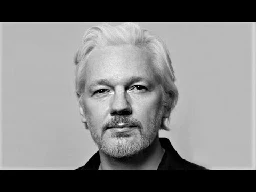
cross-posted from: https://feddit.nl/post/21795594
> When? > > Oct 1st, 8:30am CEST > --- > --- > > More info on the event: > > https://pace.coe.int/en/news/9600/julian-assange-to-attend-a-pace-hearing-in-strasbourg-on-his-detention-and-conviction-and-their-chilling-effect-on-human-rights > >
- Credibility of elections under threat worldwide driven by government intimidation, foreign interference, disinformation, and the misuse of artificial intelligence in campaignswww.idea.int Credibility of elections under threat worldwide
In 20 pct of national elections, at least one losing candidate or party rejects the result. Global voter turnout falls 10 pct points from 2008 to 2023.

In 20 percent of national elections, at least one losing candidate or party rejects the result as global voter turnout falls 10 percentage points from 2008 to 2023.
The report (as pdf): English Arabic Spanish Portuguese Swedish French
The credibility of elections is under threat globally as fewer people turn out to vote and results are increasingly contested. Almost one in three voters this year is casting a ballot in countries where election quality is worse than five years ago, according to a report by the International Institute for Democracy and Electoral Assistance (International IDEA).
- Globally, in almost 20 per cent of elections between 2020 and 2024, one of the losing candidates or parties rejected the results, and elections are being decided by court appeals at the same rate. In total, one in three elections was disputed in some way, from boycotts to legal challenges.
- The global average percentage of the voting age population who vote has declined from 65.2 per cent in 2008 to 55.5 per cent in 2023.
- Only one in four countries is making progress in democratic performance while four out of every nine are worse off.
- In 2023, the Credible Elections indicator was significantly lower in 39 countries (21 in Africa) than in 2018. Only 15 countries had higher scores than five years before.
- Declines have been most concentrated in Representation and Rights categories. Within Representation, the factors of Credible Elections and Effective Parliament have declined the most, while Economic Equality, Freedom of Expression and Freedom of the Press are the most negatively affected aspects of Rights.
‘This report is a call for action to protect democratic elections,’ said International IDEA’s Secretary-General, Kevin Casas-Zamora. ‘Elections remain the single best opportunity to end democratic backsliding and turn the tide in democracy’s favour. The success of democracy depends on many things, but it becomes utterly impossible if elections fail.’
- "The Erasure of Women:" Three years after the Taliban took over Afghanistan in August 2021, the situation for women and girls has worsened, with no indication of improvement
The Taliban’s discriminatory policies towards women, and their strict implementation, amounts to a deliberate attempt to erase women from public life, the NGO Afghan Witness (AW) finds in a report.
"These policies have resulted in the systematic exclusion of women from many public spaces in Afghanistan, including education, the work force, and even online. Most significantly, these policies have resulted in gender–based violence and femicide, an absolute erasure from female participation in Afghan life."
-
Taliban policies have resulted in a reported 25% increase in the rate of child marriage, and a 45% increase in the rate of early childbearing, alongside associated negative inter-generational social and economic consequences.
-
Reports monitored by AW between January 2022 and June 2024 found that at least 840 women and girls were the victims of gender-based violence, many at the hands of the Taliban. Of these women and girls, at least 332 were killed. These figures likely significantly understate the scale of gender-based violence in Afghanistan, as these issues often go unreported, further underscoring the erasure of women and girls from Afghan society.
-
Since girls are banned from attending school beyond the sixth grade (ages 11-12), and women from pursuing higher education in, a reported 80% of school-aged girls and young women in Afghanistan do not have access to education. Afghanistan is the only country in the world to have banned girls’ education.
-
Between 2020 and 2023, according to the World Bank, women’s labour force participation rate fell from 16% to 5%. Afghan women have been restricted in the types of government positions they are allowed to hold, being banned from working in the civil service, and have been prohibited from working for NGOs.
-
In January 2024, the Taliban initiated a campaign to arrest women and girls for non-compliance with mandatory hijab rules. Dozens of women and girls were taken into Taliban custody, with many reporting degrading treatment, torture, and even rape. The arrests led to widespread fear among Afghan women and girls, and reports of families preventing women and girls from leaving their houses due to safety concerns, as well as social stigma surrounding women held in Taliban custody.
Despite increased restrictions on women’s rights, women’s protests remain active in Afghanistan. However, over the past three years, the number of outdoor protests sharply decreased, while ‘indoor protests’ in private spaces has risen, indicating that women are prioritising their safety amidst a wave of Taliban suppression and intimidation of protesters,
Afghan women have also established libraries, secret schools, and underground beauty salons. Moreover, those in exile have launched campaigns, protests, and newsrooms, giving a voice to those severely suppressed inside the country.
-
- Worried About Our Democracy? Start by Protecting Protesters: legislators who claim to be defending democratic norms are standing by while activists get absurd sentences for peaceful protestsnewrepublic.com Seven Years in Prison for Playing the Cello in New York?
The trumped-up contempt charges against a climate protester are only the latest example of extreme punishments for peaceful protests.
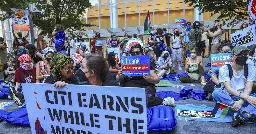
The fossil fuel industry is attempting to codify criminal penalties for some forms of climate protest. Pressed by industry donors, [U.S.] Congress has been working to broaden preexisting laws against destroying pipelines—a felony mandating up to 20 years in prison—with more expansive language extending such penalties to people who “[impair] the operation of” pipelines. Indigenous and other environmental activists rightly fear that the whole range of pipeline protests—from sacred rituals to Willie Nelson concerts—could be effectively outlawed. Exxon Mobil, Koch, and other bad actors have been lobbying hard for this, even as peaceful pipeline protesters are already finding themselves facing stiff prison sentences.
[...]
In the United Kingdom, too, climate protesters are facing alarming crackdowns. Last month, five Just Stop Oil protesters who had nonviolently stopped traffic on a major roadway in southern England were sentenced to four years each, with the leader of the group receiving a five-year sentence.
[...]
[Similarly] some of those who protested on [U.S.} university campuses against the war in Gaza this past year were initially charged with felonies (thankfully most of those have been dropped). Students at George Washington University are facing orders to stay away from campus, which will vastly complicate their academic lives, and is, according to local experts, a dramatic departure from past prosecution of protest in the District of Columbia.
[...]
Other than the Anglo-American world, where else is protest criminalized to this extent? The answer isn’t pretty: China, Cuba, Bangladesh, Belarus, the United Arab Emirates, Kazakhstan, and other places with authoritarian regimes. These aren’t countries whose political culture most Americans would like to emulate.
But some elites clearly disagree. Just as Donald Trump and Elon Musk think it’s legitimate (and even funny) to talk about firing striking workers, billionaire snowflakes who profit from the climate crisis want to punish anyone who threatens their complacency, or their ability to ravage our planet unimpeded.
- I live under the oppressive rule of the Taliban. That’s why I am urging the world to engage with them | Anonymouswww.theguardian.com I live under the oppressive rule of the Taliban. That’s why I am urging the world to engage with them | Anonymous
People who have fled Afghanistan encourage the world to sever ties with the Taliban. That only harms those of us still here, says an anonymous female aid worker

- "Participation is our biggest advantage in the fight against authoritarianism:" Human rights veteran Scot Nakagawa on the importance of confronting political violencewagingnonviolence.org Participation is our biggest advantage in the fight against authoritarianism
Anti-authoritarian organizer Scot Nakagawa explains the importance of confronting political violence and increasing participation.
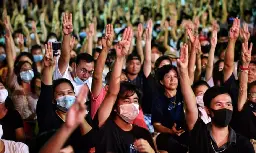
https://wagingnonviolence.org/2024/08/anti-authoritarian-organizer-scot-nakagawa-participation-advantage-confronting-political-violence
For more than 40 years, Scot Nakagawa has served as an organizer, political strategist and social movement analyst in the struggle against authoritarianism. A movement veteran, Nakagawa got his start in in the U.S. in the late 1980s, where he worked on anti-racist and LGBTQ+ organizing, drawing not only parallels between the threats communities were facing but also the potential organizing solutions.
In this interview, he stresses the importance of learning from others when abroad who struggle in their fight for human rights and democracy, and that each non-violent movement become stronger as diversity increases.
We should be "promoting diversity within our movements, centering women’s leadership, and making movements not all about doom and gloom, " Nakagawa says.
>People tend to go along with majorities. If we say the majority of people are becoming hateful, people tend to become more hateful, for instance. Spreading messages of hope can make people more hopeful. And hope is the cure to nihilism, and nihilism is the fuel of authoritarianism. So we need to be hopeful — and we need to be hopeful in ways that are concrete and not just about flowery language and lovely platitudes. We need to actually talk about what can be achieved.
- Russian government’s current laws used to crush civic freedoms a "dramatic escalation of sustained assault on fundamental rights" spanning more than a decade, human rights report sayswww.hrw.org Russia: Repressive Laws Used to Crush Civic Freedoms
The Russian government’s dismantling of civic freedoms since its full-scale invasion of Ukraine in February 2022 is a dramatic escalation of its sustained assault on fundamental rights spanning more than a decade.

The Russian government’s dismantling of civic freedoms since its full-scale invasion of Ukraine in February 2022 is a dramatic escalation of its sustained assault on fundamental rights spanning more than a decade, Human Rights Watch said in a report released today.
The 205-page report, “Russia’s Legislative Minefield: Tripwires for Civil Society since 2020,” focuses on the wave of repressive legislation and policies that the Russian government of President Vladimir Putin has adopted since 2020 and how the Kremlin has used them to suppress internal dissent and incapacitate civil society. These laws severely restrict the rights to freedom of expression, association, and peaceful assembly, and impose state-enforced historical, social, and political narratives in public life.
Penalties have stiffened over time and now include fines, imprisonment, and revocation of citizenship for naturalized citizens. By 2022-2023, amendments also excluded alleged “foreign agents” from many aspects of public life, including civil service and teaching, as the authorities sought to create, in the words of one activist, “a caste of untouchables.”
A series of amendments shredded what had remained of freedom of peaceful assembly, effectively making legitimate protest illegal, Human Rights Watch said.
- Brothers in oppression: Pakistan learning tricks of rights violations from Chinamorungexpress.com Brothers in oppression: Pakistan learning tricks of rights violations from China
New Delhi, August (IANS): Pakistan is once again engulfed in a summer of protests, facing significant social upheaval with ongoing anti-state demonstrations in Balochistan and Khyber-Pakhtunkhwa (KPK).
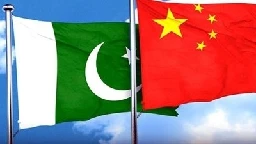
Pakistan is once again engulfed in a summer of protests, facing significant social upheaval with ongoing anti-state demonstrations in many areas [...]
The state's response to the current unrest combines longstanding repressive tactics with new approaches [that seem to be] heavily influenced by its subservient and dependent relationship with Beijing. The Pakistani security agencies have adopted new repressive methods to suppress domestic dissent, especially in Balochistan and KPK, areas where Pakistan has upheld a quasi-imperial political structure since the mid-20th century [...]
Pakistan's tactics closely resemble China's longstanding approach to suppressing social unrest, political resistance, and minority groups. Beijing is a symbol of extending authoritarianism into the digital realm through mechanisms such as the 'Great Firewall' and the 'Great Digital Wall of China'.
The Chinese government has created one of the most restrictive media environments worldwide, implementing stringent censorship "to control information in the news, online, and on social media".
Additionally, it has established numerous concentration camps in Xinjiang for the ethno-religious Uyghur Muslim minority. These camps, termed "re-education camps" by the state, hold millions of Uyghurs.
The Chinese government also compels Uyghur women to marry Han Chinese men as part of its effort to suppress this ethnically and religiously distinct minority, which it views as a challenge to its homogenization agenda.
Similarly, cultural assimilation tactics have been employed against Tibetan Buddhists to integrate them into the dominant Han Chinese culture.
Drawing from China's methods to suppress minorities and stifle political dissent, Pakistan's military-dominated establishment [...] has recently sanctioned the creation of a national digital firewall.
This firewall, sourced from China, effectively grants the Pakistani state the authority to regulate social media platforms and restrict citizen access to crucial socio-political sites like Facebook, Instagram, YouTube, and TikTok [which] allows government agencies to trace individual IP addresses, which Pakistani officials label as primary sources of ongoing "anti-state propaganda" [...]
In addition to implementing a nationwide digital firewall, the Pakistani government has also pledged to regulate the use of virtual private networks (VPNs) within the country [...]
This scenario highlights how Pakistan is adopting the repressive tactics of the Chinese state, using them to target Baloch and Pashtun communities, and rendering their struggle invisible while continuing to suppress their calls for an end to ongoing state abuses.
- How Civil Society Can Confront the China Challenge — And Winwww.journalofdemocracy.org How Civil Society Can Confront the China Challenge — And Win | Journal of Democracy
The CCP is engaged in a sprawling campaign to undermine democracy. Governments too often can be lumbering or weak in response. Look to civil society for the creativity and skill to keep the CCP on its…
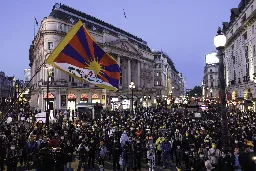
Written by Kevin Sheives, Deputy Director of the International Forum for Democratic Studies at the National Endowment for Democracy, and Caitlin Dearing Scott, Director for Countering Foreign Authoritarian Influence at the International Republican Institute.
>Beijing’s effort to undermine core democratic values and practices spans the globe and includes: a school in Tanzania where the CCP [Chinese Communist Party] trains members of African political parties; the muzzling of newspaper editors and journalists in Canada, South Africa, and Malaysia; secret pay-to-play deals for PRC-sponsored infrastructure and media projects in Ecuador, Sri Lanka, and the Solomon Islands; the manipulation of university life in Germany, New Zealand, and the United States to limit criticism of the CCP regime and push “positive” views of China; and the use of CCP-affiliated media concerns and business groups to support pro-Beijing political candidates in Australia, Taiwan, and the United States [...]
>In this campaign [of the CCP], civil society and the broader nongovernmental sector has come under attack. To eliminate any opposition to CCP rule under Xi Jinping, the CCP has conducted a sustained assault on China’s own civil society. As the world saw in the A4 protest movement in November 2022, a single spark could ignite the underlying frustration that so many Chinese citizens face when denied their basic freedoms. At home, the CCP is bent on curbing social unrest by coopting or targeting civil society [...]
>In South Asia, it financed an academic culture that lauded the Belt and Road Initiative and used fear of lost scholarships to make South Asian students in China avoid “controversial” topics. In Kenya, journalists have said that their reporting on a PRC-built railway brought their publications warnings of ad boycotts by PRC-based companies. And among Chinese dissidents abroad or even foreign citizens of Chinese heritage, Freedom House paints a picture of “the most sophisticated, global, and comprehensive campaign of transnational repression in the world.” [...]
>In an era when public trust in government and other key institutions has declined, civil society can also speak locally and credibly. Civic organizations’ proximity to their constituents is a key component of their local legitimacy, which can make them effective at countering PRC narratives [...]
Advocacy and other civil society activities can also be particularly sensitive to the will of citizens. One Peruvian environmental-advocacy group exposed the negative impact of a PRC company on Amazonian and indigenous areas, activating Peruvian policymakers and even the PRC embassy to address these community vulnerabilities. In Ghana, a consortium of journalists, researchers, and activists exposed Chinese companies’ illegal mining activity. The revelations not only sparked new policy platforms for Ghanaian political parties, but the continued public pressure on Ghanaian law enforcement led to the prosecution of a Chinese national. A Sri Lankan media organization secured greater transparency and access to information for the public by holding public dialogues and conducting investigations of PRC infrastructure projects in the country [...]
>The sprawling, full-spectrum influence and engagement campaign that the Chinese Communist party-state is waging around the world requires an equally comprehensive response from civil societies, governments, and economic actors that back democracy. Yet civil societies must not wait for governments to act. In this escalating contest of values across democratic societies, the CCP is clearly not waiting either.
- Saudi Arabia’s hosting bid for 2034 World Cup 'falls far short' on human rights.www.amnesty.org.uk Saudi Arabia’s hosting bid for 2034 World Cup 'falls far short' on human rights
We are Amnesty International UK. We are ordinary people from across the world standing up for humanity and human rights.
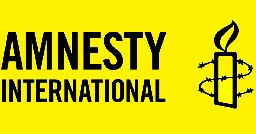
- Human Rights Foundation’s Weekly Financial Freedom Report #33
Preview snippet:
"Across the world this week, authoritarian regimes predictably continue leveraging centralized technologies and top-down policies to tighten their grip on power. In Russia, Vladimir Putin pushes for harsh regulations on Bitcoin mining, citing fears of potential power outages. These measures would grant the regime unilateral control over where Bitcoin can be mined and who can mine it. While cracking down on access to an open network, he is simultaneously advocating for an expansion of a central bank digital currency (CBDC). This would inevitably grant his regime unprecedented control over individual financial transactions."
- UN Global Digital Compact: internet governance and human rightswww.accessnow.org UN Global Digital Compact: internet governance and human rights
The UN Global Compact areas of greatest concern, including human rights and gender, support for the OHCHR, & inclusive approaches to internet governance.

> First, and foremost, references to States’ obligations under international human rights law are not sufficiently robust nor consistently mainstreamed throughout the text. We call on Member States to ground all objectives set out in the document in international human rights law. This includes adding references to “international human rights law” while also maintaining the role of international human rights law as a body of international law. For example, we are concerned that paragraph 30(d) refers to “international law” and fails to recognize the need for States to refrain from the use of mass surveillance and ensure that targeted surveillance technologies are only used in compliance with international human rights law, including the principles of legality, legitimacy, necessity, and proportionality. This paragraph should also acknowledge the need for States to promote privacy-preserving and rights-respecting technologies, including end-to-end encryption, pseudonymity, and anonymity, which secure and protect the confidentiality and security of digital communications, in accordance with various UN resolutions (including the UN Human Rights Council resolution on the Right to privacy in the digital age A/HRC/RES/54/21 and the new General Assembly resolution on the Promotion and protection of human rights in the context of digital technologies A/RES/78/213). We further call on Member States to add references to “international humanitarian law” and “international refugee law” where relevant for the same reasons.
- Legal Consequences Arising From The Policies And Practices Of Israel In the Occupied Palestinian Territory, Including East Jereusalem
Summary provided by https://notegpt.io/pdf-summary
Summary
The International Court of Justice has found that Israel’s policies and practices in the Occupied Palestinian Territory, including East Jerusalem, violate international law. The Court determined that Israel’s actions, such as its settlement policy, acts of annexation, and discriminatory legislation and measures, constitute a breach of international law, including the prohibition on the use of force and the non-acquisition of territory by force. Israel’s presence in the territory is deemed unlawful, and the Court has called for an end to settlement activities, evacuation of settlers, reparations for damages caused, and non-recognition of the illegal situation by states and international organizations.
Key Insights
- The International Court of Justice has determined that Israel’s presence in the Occupied Palestinian Territory, including East Jerusalem, violates international law.
- Israel’s settlement policy, acts of annexation, discriminatory legislation, and measures were found to be in breach of international law.
- The Court has called for an end to settlement activities, evacuation of settlers, reparations for damages, and non-recognition of the illegal situation.
- The General Assembly and Security Council of the United Nations are tasked with considering further action to end Israel’s presence in the territory.
- The Court emphasizes the importance of achieving a just and lasting peace in the region for the benefit of all parties involved.
Frequently Asked Questions
Question
What actions were deemed unlawful by the International Court of Justice in the Occupied Palestinian Territory?
Answer
The Court found Israel’s settlement policy, acts of annexation, discriminatory legislation, and measures to be in violation of international law.
Question
What measures did the Court call for to address Israel’s presence in the territory?
Answer
The Court called for an end to settlement activities, evacuation of settlers, reparations for damages caused, and non-recognition of the illegal situation.
Question
Which international organizations are obligated not to recognize the illegal situation in the Occupied Palestinian Territory? Answer All states and international organizations are obligated not to recognize the illegal situation in the territory.
Question
What role do the General Assembly and Security Council of the United Nations play in addressing Israel’s presence in the territory?
Answer
The General Assembly and Security Council are tasked with considering further action to end Israel’s presence in the Occupied Palestinian Territory.
- World Court Finds Israel Responsible for Apartheidwww.hrw.org World Court Finds Israel Responsible for Apartheid
The International Court of Justice (ICJ) issued an advisory opinion on July 19, 2024, with significant consequences for human rights protections in Palestine under Israel’s 57-year occupation. The opinion stems from a December 2022 request by the United Nations General Assembly to the court to consi...

> In a historic ruling the International Court of Justice has found multiple and serious international law violations by Israel towards Palestinians in the Occupied Palestinian Territory, including, for the first time, finding Israel responsible for apartheid. The court has placed responsibility with all states and the United Nations to end these violations of international law. The ruling should be yet another wake up call for the United States to end its egregious policy of defending Israel’s oppression of Palestinians and prompt a thorough reassessment in other countries as well.
- Open Letter to GoK on Human Rights Crackdown in Kenya | KICTANet Think Tank
> The Finance Bill, 2024 was tabled in parliament on 9 May 2024 and faced strong opposition from members of the public and other stakeholders during the public participation stage. This was due to the threats that it posed to data protection, the business environment, and a choking cost of living crisis that would be worsened by increased taxes. While President Ruto announced the withdrawal of the contentious bill on 26 June 2024, the actions of state authorities prior to and after this decision have created a very chilling environment for citizens, human rights defenders, journalists, and political dissidents opposed to the bill and critical of the government’s actions.
- October 7 Crimes Against Humanity, War Crimes by Hamas-led Groupswww.hrw.org October 7 Crimes Against Humanity, War Crimes by Hamas-led Groups
Hamas’ military wing – the Qassam Brigades – and at least four other Palestinian armed groups committed numerous war crimes and crimes against humanity against civilians during the October 7, 2023 assault on southern Israel. Governments with influence over the armed groups should press for the relea...

> Hamas’ military wing – the Qassam Brigades – and at least four other Palestinian armed groups committed numerous war crimes and crimes against humanity against civilians during the October 7, 2023 assault on southern Israel, Human Rights Watch said in a report released today. Governments with influence over the armed groups should press for the urgent release of civilian hostages, an ongoing war crime, and for those responsible to be brought to justice.
> The 236-page report, “‘I Can’t Erase All the Blood from My Mind’: Palestinian Armed Groups’ October 7 Assault on Israel,” documents several dozen cases of serious violations of international humanitarian law by Palestinian armed groups at nearly all the civilian attack sites on October 7. These include the war crimes and crimes against humanity of murder, hostage-taking, and other grave offenses. Human Rights Watch also examined the role of various armed groups and their coordination before and during the attacks. Previous Human Rights Watch reports have addressed numerous serious violations by Israeli forces in Gaza since October 7.
- Joint statement: European Court of Human Rights rules against Russia: Trans parent’s foster-care termination violates family rightswww.iccl.ie Joint statement: European Court of Human Rights rules against Russia: Trans parent’s foster-care termination violates family rights
12 July 2024 In a judgement published yesterday, the European Court of Human Rights found that Russia violated the right to private and family life of a trans man and his two foster children by…

- Open Letter: Advocating for Brazilian AI regulation that protects human rights - Coalizão Direitos na Rededireitosnarede.org.br Open Letter: Advocating for Brazilian AI regulation that protects human rights - Coalizão Direitos na Rede
If you want to join this letter, fill out this form! Acesse a versão em português aqui!Versión en español aquí! In Brazil, a human rights-based approach to regulation for Artificial Intelligence Systems is urgent. It is undeniable that artificial intelligence (AI) systems have the potential to benef...
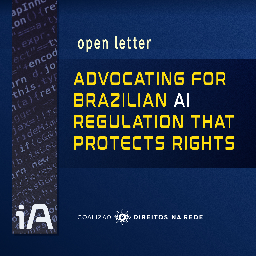
> AI is already facilitating and generating harms and violations, for instance, by reinforcing discriminatory practices, excluding marginalized groups from access to essential goods and services, supporting misinformation, undermining democratic processes, surveillance change climate, the epidemic of Indigenous and local languages and cultures, and up job insecurity.
> To ensure AI systems promote innovation based on human rights, ethics, and responsibility, it is crucial to establish minimum rules to safeguard the rights of affected individuals, obligations for AI agents, governance measures, and the definition of a regulatory framework for oversight and transparency. This is not prevents development and innovation; on the contrary, effective regulation that rights is an indispensable condition for the flourishing of the world's of the world.
- Protecting the human rights of sex workerswww.coe.int Protecting the human rights of sex workers
The Council of Europe Commissioner for Human Rights - Human rights comments - Blog

> Council of Europe member states should adopt a human rights based approach to sex work. Such an approach must ensure sex workers’ protection from violence and abuse, their equal access to health and other social rights, as well as their rights to private life and to participate in public and political life.
> ...
> A human rights based approach also means that consensual sexual relations between adults for remuneration should not be criminalised. Criminalisation and the enforcement of punitive provisions against sex workers, clients or third parties has significantly reduced sex workers’ access to rights and essential services and has led sex workers to live and work in a clandestine manner and in isolation, in fear of the justice system. Conversely, decriminalisation of consensual adult sex work has had positive effects on the safety of sex workers and on their access to social protection and health services, resulting in improved health outcomes. The UN working Group also noted that a decriminalised framework is most conducive to the protection of sex workers’ rights to participate in public and political life.
- Six months of wins for human rightswww.amnesty.org Six months of wins for human rights
Our supporters have taken action, proving that people power changes lives.

- Iran’s Ahmadinejad condemns terrorism after attempt on Trump’s lifewww.iranintl.com Iran’s Ahmadinejad condemns terrorism after attempt on Trump’s life
Iran's former president Mahmoud Ahmadinejad condemned terrorism on Sunday in an apparent reaction to the recent assassination attempt on former US president Donald Trump.

> Without naming Trump, Ahmadinejad took to X to denounce terrorism as a violation of human rights.
> "Terror and terrorism, whether state-sponsored or non-state, are among the most heinous anti-human actions that words cannot express the depth of their evil," in an apparent reference to the attack."Humanity around the world suffers from such severe pains," he said on X.
> The statement is part of his efforts in recent years to rebrand himself as a moderate figure in Iranian politics, although many still remember his hardline policies during his tenure, which included the arrest, torture, and killing of numerous protesters.
- Pressure builds on FIFA to suspend Israel ahead of extraordinary Council meetingwww.insideworldfootball.com Pressure builds on FIFA to suspend Israel ahead of extraordinary Council meeting - Inside World Football
July 18 – On the eve of a scheduled extraordinary FIFA council meeting to decide the fate of Israel’s immediate future in international football, human rights and pressure groups have called on the world governing body to suspend the country from the international game. At the FIFA Congress in Bang...

> Both the PFA and IFA have filed their submissions to the panel, but human rights groups are stepping up the pressure on FIFA to take action on Israel.
> Earlier this week, FairSquare submitted a report to FIFA arguing that it has “multiple grounds to suspend or expel the IFA”, highlighting among others “the holding of matches in occupied Palestinian territory, serious and systematic racial discrimination, political interference, and Israel’s killing of Palestinian players and the systematic destruction of PFA facilities – most of which predate Israel’s attacks in Gaza since the Hamas attacks of 7 October 2023.”
> The terror attacks by Hamas killed 1,200 people on October 7 and Hamas took more than 250 hostages according to Israeli figures, but Israel has killed more than 38,000 Palestinians since, according to Palestinian health authorities.
> FairSquare argued that FIFA have to act under article 72.1, article 4.1, article 14.1 (i) and article 15 (c), and article 2.1 of the FIFA Statutes.
- Federal parliamentary committee presents a decisive case for an Australian Human Rights Actjohnmenadue.com Federal parliamentary committee presents a decisive case for an Australian Human Rights Act - Pearls and Irritations
Government accountability whether to the parliament, the courts, or to citizens, has been substantially weakened in the past two decades.
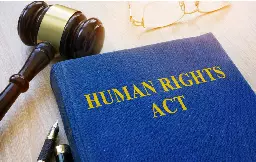
> It is often said by those who oppose a Human Rights Act that there is no need for one. The human rights of Australians are more than adequately protected by the common law and statute. Anyone still holding that view will be hard pressed to retain it should they read the recent, comprehensive report on the subject prepared by the Australian Law Reform Commission. The report is entitled ‘Traditional Rights and Freedoms: Encroachments by Commonwealth Law.
> The report identifies hundreds of provisions in Commonwealth law that may constitute incursions on human rights and freedoms. The nature and extent of the legislative provisions that may be in breach of fundamental rights and freedoms will come as a shock to anyone who cares to delve into the ALRC’s first class report. No report in recent decades has come close to providing such a detailed enumeration, description and analysis of statutory infringements of human rights. Take freedom of speech and procedural fairness as examples.
- [2024-07-11] Human Rights @ SDF Community Update
Hello all of you subscribers! Your appreciative moderator, here, with a quick message.
This community was formed approx. a month ago. I didn't expect there to be much activity, but I was hopeful that some solid groundwork it might take off, as the time is right for human rights.
There are now 76 of us subscribed. People other than myself have started posting, which is great to see. We've started to see some comments coming in, which is also great to see.
I spent a couple of weeks laying some groundwork posts and then slowed down a little the last couple of weeks, but I think it will be sustainable for me to keep a steady, slow trickle of posts going.
This is my first time moderating an online community, so please bear with me as I learn how to keep a community happy and engaged!
Thank you for taking the time to read this and to care about human rights.
- China defends its human rights record at UN meetingwww.voanews.com China defends its human rights record at UN meeting
UN Human Rights Council session was mainly focused on China's treatment of Uyghurs
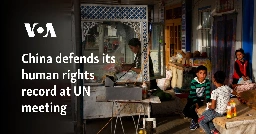
> Chen Xu, China's ambassador to the U.N. in Geneva, said at the meeting, attended by a delegation of Chinese diplomats and officials, that recommendations rejected by China were "politically motivated based on disinformation, ideologically biased or interfering in China's traditional sovereignty." He condemned what he called an attempt to "smear and attack" China.
> China has drawn much criticism over the years for its treatment and detention of Uyghurs and other Muslims. A 2022 U.N. report, published by former U.N. rights chief Michelle Bachelet, said China's treatment of Uyghurs could constitute crimes against humanity, something China has consistently denied.
> Thursday's review of China's human rights record before the Human Rights Council was the first since the publication of the 2022 report. ... Each U.N. member state undergoes a review of its human rights record every few years.
- Growth is enriching an elite and killing the planet. We need an economy based on human rightswww.theguardian.com Growth is enriching an elite and killing the planet. We need an economy based on human rights | Olivier De Schutter
Economic growth allows the few to grow ever-wealthier. Ending poverty and environmental catastrophe demands fresh thinking
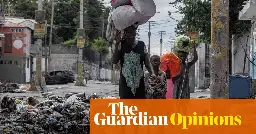
> A “human rights economy” can deliver for people and the planet because it shifts our focus from growth to humanity – grounding the purpose of the economy in fundamental, universal human values. It offers human rights as a guardrail to keep the economy on track – meeting the challenges of the climate crisis, addressing inequalities and eradicating poverty.
> This proposition is not some fairytale. Concrete steps can be taken now, starting with choosing measures of progress other than gross domestic product (GDP) – which tells us nothing about the ecological or social fallout of economic activity.
> And we need to start valuing what really counts. GDP has no way of accounting for the estimated 16.4bn hours spent every day worldwide on unpaid work, largely carried out by women, that underpins the global economy: caring for children, people with disabilities and older citizens.
- Julian’s first birthday in freedom in fourteen years.

cross-posted from: https://lemmy.ml/post/17612573
> cross-posted from: https://lemmy.ml/post/17610222 > > > Source: Stella Assange via nostr


